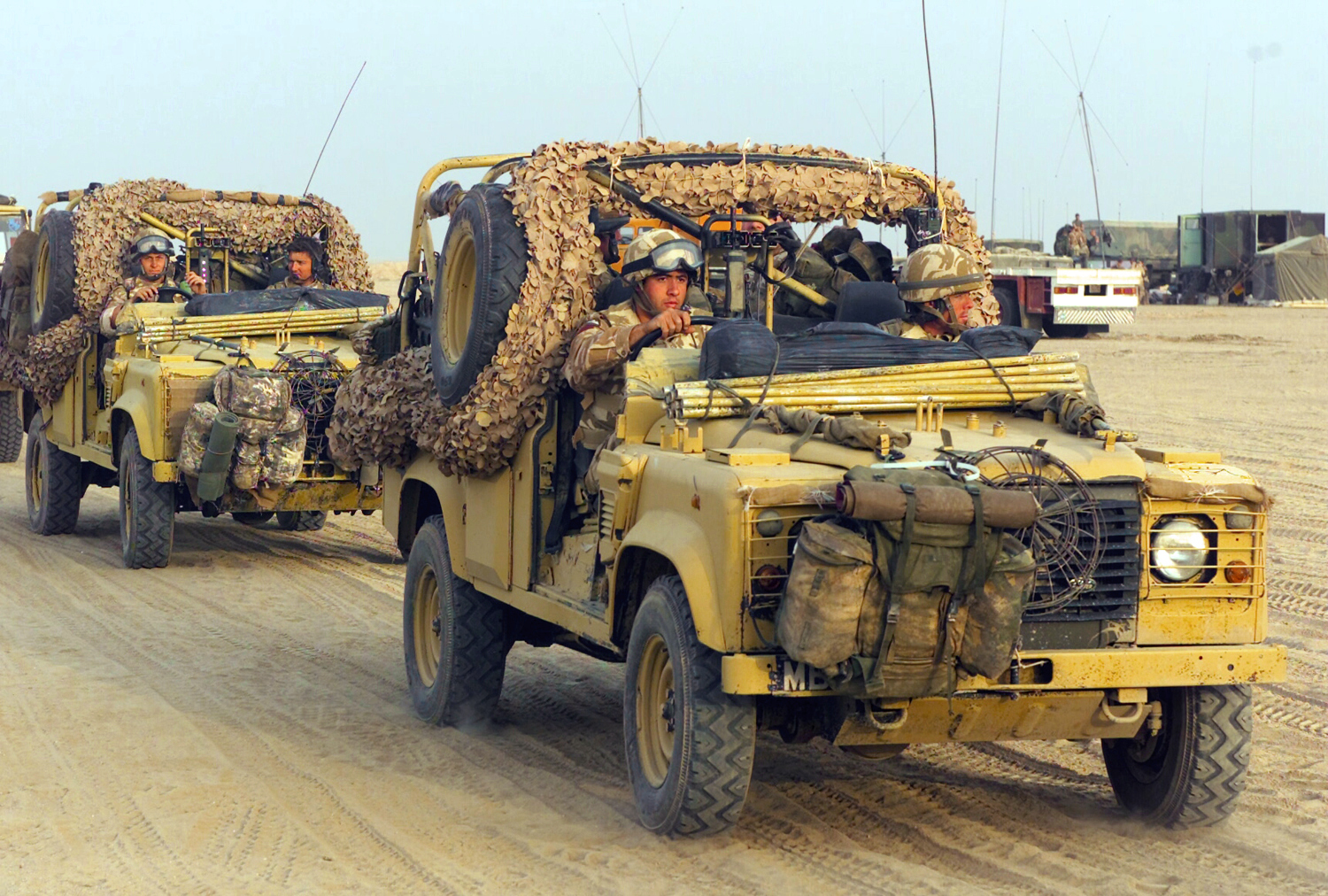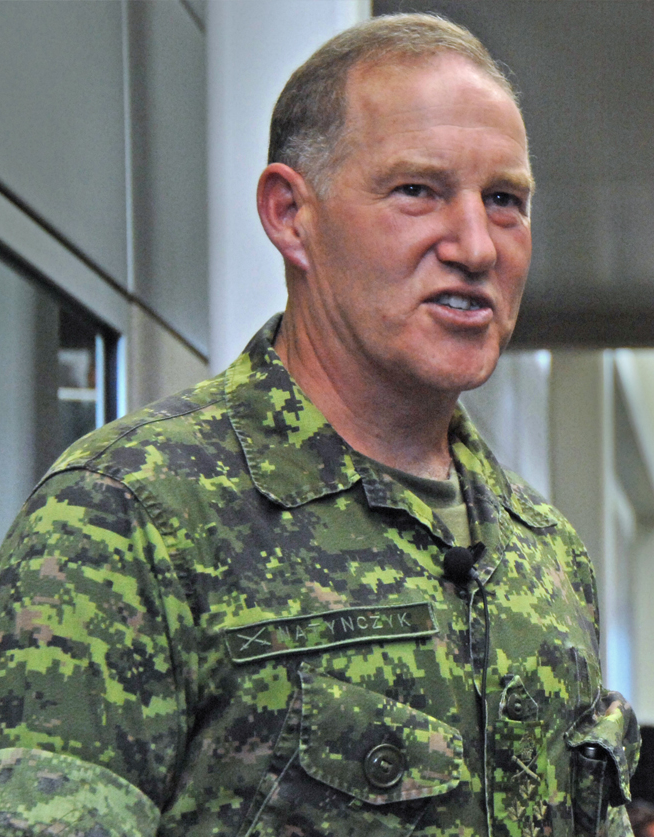
Our thoughts naturally turned to Iraq's petroleum reserves, the second largest in the world, and to be sure as an organization we did use in our first demonstrations the international slogan "No blood for oil." And it is true that the only building protected by U.S. troops after the fall of Baghdad in April 2003 was the petroleum ministry. However, in the discussion I suggested to Jessica and Katie that this explanation was only partial.
"Blood for oil" not the primary reason
 |
The United States had lost its Soviet enemy, but it retained an economy which devoted nearly as many resources to military equipment and personnel as every other country in the world put together. Over 100,000 American companies receive Pentagon contracts, including large corporations like Lockheed Martin, Boeing, General Dynamics, General Electric, and the U.S. automobile and petroleum companies. At the same time there is deep interpenetration among the major American media outlets and Pentagon suppliers, sometimes in the form of outright ownership -- General Electric, for example, owns NBC -- and frequently in the form of interlocking membership on boards of directors. Virtually every social class and every geographical region of the United States has a stake in this military economy.
It is the large corporations that finance and even provide the personnel (like Vice President Dick Cheney, CEO of the petroleum and war services firm Halliburton) for the American political class, and determine the limits of American political discourse. So the annual $417 billion U.S. of taxes (in 2003) for military expenditures must be collected, the arms must be built and the soldiers must be employed. And from time to time, even when there is no visible enemy threatening, this titanic economic machine must have an outlet to allow for the renewal of production. This outlet is war.
The new régime of war and the "clash of civilizations"
 |
A key moment in the evolution of the state of war was September 11th, 2001, which was both an extremist reaction to American interventionism in the Middle East and a superb pretext for the pursuit of continuous war. Occurring at a time when in reality Islamic fundamentalism was in regression throughout the Muslim world, September 11th enabled Samuel Huntington's notorious "clash of civilizations" thesis to be consecrated as the semi-official ideology underpinning the régime of war.
Why does the war economy target Islamic enemies like Iraq?
The principal enemy in the "clash of civilizations" ideology is of course Islamic society, and Muslim countries like Libya, Afghanistan, Iraq, Syria and Iran. Why is this the case? The answer to this question is anthropological. First, Muslim societies in western Asia and north Africa are organized principally on the basis of extended families and tribes, to whom individuals owe their primary loyalty. State structures are therefore weak in these societies, making them vulnerable and easy targets for demonstrations of theatrical militarism. Secondly, the place of women in traditional Islamic families is one of inferiority, providing a sharp contrast to norms of American society and enabling the dominant ideology to portray these Muslim societies as backward and, at least subconsciously, deserving the bombs that are dropped on them. That is why the U.S. media presented the bombing of Afghanistan as a kind of feminist liberation.*
Imperial strategies and the geopolitics of war
From a strictly American point of view, the state of war is about American hegemony. I quote Stephen Peter Rosen from the Harvard Magazine in 2002: "We are in the business of bringing down hostile governments and creating governments favorable to us... Imperial garrisons must be left in place for decades to ensure order and stability... Imperial strategy focuses on preventing the emergence of powerful, hostile challengers to the empire: by war if necessary, but by imperial assimilation if possible." The Democratic Party in the United States differs from the Republican Party mainly in its desire to press a number of allied countries into this project. Thus at the very top of John Kerry's electoral platform was the promise to "Launch and lead a new era of alliances", which involves "utilizing every available resource to get the terrorists before they can strike us" (in other words, "preventive" war). The second and third items on the Kerry platform were to "Modernize the world's most powerful military" and to "Deploy all that is in America's arsenal."
The régime of war is in fact already an international enterprise in which other states participate, notably Russia (maintaining a state of war in the Muslim province of Chechnya), the United Kingdom (in Iraq), and Israel (in the Muslim Occupied Territories of Palestine), and to a lesser extent, as we shall see, Canada. The gargantuan U.S. military and economic apparatus, with its tentacles spread across the planet, has the appearance of an extremely potent state organization, but in fact that appearance is to some degree deceptive. Paradoxically, the régime of war has accompanied not a strengthening but a weakening of the nation state. Real power is now concentrated less in the organs of the state than in those of a small, planetary financial aristocracy, linked together in a skeleton of urban centres, while whole regions like rural China, whole countries like Argentina, and whole continents like Africa are reduced to poverty and servitude. Politics in this situation no longer draws upon common ideals or common projects, but is rather structured around common fears: insecurity, terrorism, unemployment. In this way the régime of war is domesticated, and liberal capitalist societies take on the trappings of fascism (the Patriot Act in the United States and similar legislation in other countries that allow for such actions as the indefinite imprisonment of detainees without charges).
The régime of war in Canada and Newfoundland
Canada and our own province of Newfoundland and Labrador have their place in the régime of war. Several Newfoundland-based companies provide equipment and services to the United States military. It is true that the political situation in Quebec in the winter of 2003, with massive opposition in that province to Canadian participation in the war on Iraq and an impending provincial election, made it impossible for Canada to openly join America's "coalition of the willing". However, senior Canadian officers did participate in the planning of the invasion of Iraq at the Fort Lauderdale command base in Florida.
 |
To conclude, the war in Iraq cannot be understood in isolation. It is rather an instance of a new régime of open-ended war, which itself is the product of economic structures that dominate the United States and indeed the entire planet.
* This paragraph follows the analysis of Emmanuel Todd, Après l'empire, (Paris: Gallimard, 2002), pp. 191-196, 200-204.
Presentation by James MacLean at the panel discussion "Iraq: A Casualty Report and the Newfoundland Connection", Memorial University of Newfoundland,November 18, 2004.
Observations and analyses in these essays are those of the author, and are not to be attributed to the service provider or to any institution.